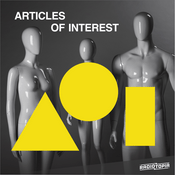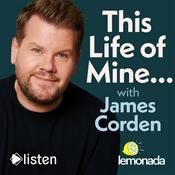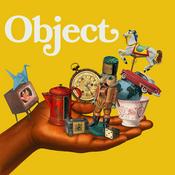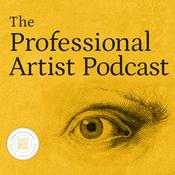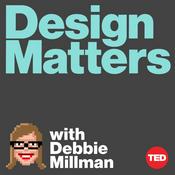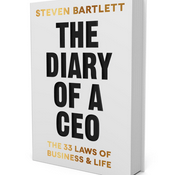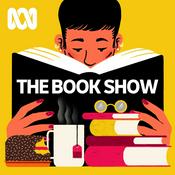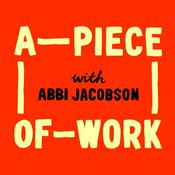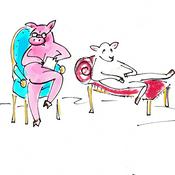30 episodes

How the Maya Thrived for Millennia | Lisa J. Lucero with Javier Mejia
27/12/2025 | 1h 4 mins.
Interview with Lisa J. Lucero, author of 'Maya Wisdom and the Survival of Our Planet'Maya Wisdom and the Survival of Our Planet presents the Maya way of seeing and interacting with the world, which embodies lessons and provides solutions to ensure a sustainable future of Earth. This book is based on over three decades of working with Maya associates in Belize, Central America, to study the ancestral Maya as an archaeologist, and it approaches the future through the lens of the Maya nonanthropocentric inclusive worldview. Ancestral Maya people worked with, not against, nature. Nor did they privilege humans at the expense of nonhumans. Their engagement with the tropical environment was expressed in a landscape of green cities, farmsteads, gardens, fields, forests, and sacred places. The Maya built green cities that drew people in through royal reservoirs, a system that lasted over 1,000 years in the southern lowlands (c. 300 bce to 900 ce). After taking the reader on a journey through Maya history, their tropical world, and how they lived in it and engaged with nonhumans through ceremonies, the book concludes with concrete solutions that bridge the past and present for the future. Conditions are not going to change, but people can. Maya resilience is a testament for how to move forward, and this book provides a roadmap of how to do so.-------Javier Mejia is a Stanford University lecturer who specializes in the intersection of social networks and economic history. His research interests also include entrepreneurship and political economy, with a particular focus on Latin America and the Middle East. He holds a Ph.D. in Economics from Los Andes University. Mejia has previously been a Postdoctoral Associate and Lecturer at New York University-Abu Dhabi and a Visiting Scholar at the University of Bordeaux. He is also a frequent contributor to various news outlets, currently serving as an op-ed columnist for Forbes Magazine.Twitter (X): https://twitter.com/JavierMejiaCInstagram: https://www.instagram.com/javier_mejia_c/LinkedIn: https://www.linkedin.com/in/javier-mejia-cubillos-64504562/

The Collapse of Antiquity | Walter Scheidel with Javier Mejia
28/11/2025 | 50 mins.
Interview with Walter Scheidel, author of 'What is Ancient History?'It’s easy to think that ancient history is, well, ancient history—obsolete, irrelevant, unjustifiably focused on Greece and Rome, and at risk of extinction. In What Is Ancient History?, Walter Scheidel presents a compelling case for a new kind of ancient history—a global history that captures antiquity’s pivotal role as a decisive phase in human development, one that provided the shared foundation of our world and continues to shape our lives today.-------Javier Mejia is a Stanford University lecturer who specializes in the intersection of social networks and economic history. His research interests also include entrepreneurship and political economy, with a particular focus on Latin America and the Middle East. He holds a Ph.D. in Economics from Los Andes University. Mejia has previously been a Postdoctoral Associate and Lecturer at New York University-Abu Dhabi and a Visiting Scholar at the University of Bordeaux. He is also a frequent contributor to various news outlets, currently serving as an op-ed columnist for Forbes Magazine.Twitter (X): https://twitter.com/JavierMejiaCInstagram: https://www.instagram.com/javier_mejia_c/LinkedIn: https://www.linkedin.com/in/javier-mejia-cubillos-64504562/

Political Conflict in the History of France | Julia Cagé with Javier Mejia
01/11/2025 | 49 mins.
Interview with Julia Cagé, co-author with Thomas Piketty of 'A History of Political Conflict: Elections and Social Inequalities in France, 1789–2022'Who votes for whom and why? Cagé and Piketty comb through more than two hundred years of data from some 36,000 French municipalities to show how inequality has shaped the formation of political coalitions, with stark consequences for economic and political development.Cagé and Piketty argue that today’s tripartite division of French political life—a competition among a bourgeois central bloc and distinct factions of the urban and rural working classes—has a precise, and revealing, historical analogue. To understand contemporary tensions, we can look to the end of the nineteenth century and the beginning of the twentieth, another period when runaway economic inequality produced such a three-way rivalry. Cagé and Piketty show that tripartition has always been unstable, whereas the binary political conflict enabled by relative equality and typical of most of the twentieth century facilitated social and economic progress. Comparing these configurations over time helps us envisage possible trajectories for the French political system in the coming decades.With its many changes in governmental structure since 1789, France is an ideal laboratory for studying the vicissitudes of modern political life in general, and electoral democracy in particular. Using France as a model, A History of Political Conflict offers a powerful framework for understanding the complex project of building and sustaining democratic majorities.-------Javier Mejia is a Stanford University lecturer who specializes in the intersection of social networks and economic history. His research interests also include entrepreneurship and political economy, with a particular focus on Latin America and the Middle East. He holds a Ph.D. in Economics from Los Andes University. Mejia has previously been a Postdoctoral Associate and Lecturer at New York University-Abu Dhabi and a Visiting Scholar at the University of Bordeaux. He is also a frequent contributor to various news outlets, currently serving as an op-ed columnist for Forbes Magazine.Twitter (X): https://twitter.com/JavierMejiaCInstagram: https://www.instagram.com/javier_mejia_c/LinkedIn: https://www.linkedin.com/in/javier-mejia-cubillos-64504562/Spotify: https://open.spotify.com/show/3WqEZXavqg3qstoLKwtllF?si=589f4216d414448fApple Podcasts: https://podcasts.apple.com/us/podcast/the-economic-and-political-history-podcast/id1708348817

The Roman Economy: The lives of the 90% | Kimberly Bowes with Javier Mejia
04/10/2025 | 56 mins.
Interview with Kim Bowes, author of 'Surviving Rome: The Economic Lives of the Ninety Percent'The story of ancient Rome is predominantly one of great men with great fortunes. Surviving Rome unearths another history, one of ordinary Romans, who worked with their hands and survived through a combination of grit and grinding labor.Focusing on the working majority, Kim Bowes tells the stories of people like the tenant farmer Epimachus, Faustilla the moneylender, and the pimp Philokles. She reveals how the economic changes of the period created a set of bitter challenges and opportunistic hustles for everyone from farmers and craftspeople to day laborers and slaves. She finds working people producing a consumer revolution, making and buying all manner of goods from fine pottery to children’s toys. Many of the poorest working people probably pieced together a living from multiple sources of income, including wages. And she suggests that Romans’ most daunting challenge was the struggle to save. Like many modern people, saving enough to buy land or start a business was a slow, precarious slog. Bowes shows how these economies of survival were shared by a wide swath of the populace, blurring the lines between genders, ages, and legal status.-------Javier Mejia is a Stanford University lecturer who specializes in the intersection of social networks and economic history. His research interests also include entrepreneurship and political economy, with a particular focus on Latin America and the Middle East. He holds a Ph.D. in Economics from Los Andes University. Mejia has previously been a Postdoctoral Associate and Lecturer at New York University-Abu Dhabi and a Visiting Scholar at the University of Bordeaux. He is also a frequent contributor to various news outlets, currently serving as an op-ed columnist for Forbes Magazine.Twitter (X): https://twitter.com/JavierMejiaCInstagram: https://www.instagram.com/javier_mejia_c/LinkedIn: https://www.linkedin.com/in/javier-mejia-cubillos-64504562/

A History of Women in International Thought | Patricia Owens with Javier Mejia
06/9/2025 | 46 mins.
Interview with Patricia Owens, author of 'Erased: A History of International Thought Without Men'The academic field of international relations presents its own history as largely a project of elite white men. And yet women played a prominent role in the creation of this new cross-disciplinary field. In Erased, Patricia Owens shows that, since its beginnings in the early twentieth century, international relations relied on the intellectual labour of women and their expertise on such subjects as empire and colonial administration, anticolonial organising, non-Western powers, and international organisations. Indeed, women were among the leading international thinkers of the era, shaping the development of the field as scholars, journalists, and public intellectuals—and as heterosexual spouses and intimate same-sex partners.------Javier Mejia is a Stanford University lecturer who specializes in the intersection of social networks and economic history. His research interests also include entrepreneurship and political economy, with a particular focus on Latin America and the Middle East. He holds a Ph.D. in Economics from Los Andes University. Mejia has previously been a Postdoctoral Associate and Lecturer at New York University-Abu Dhabi and a Visiting Scholar at the University of Bordeaux. He is also a frequent contributor to various news outlets, currently serving as an op-ed columnist for Forbes Magazine.Twitter (X): https://twitter.com/JavierMejiaCInstagram: https://www.instagram.com/javier_mejia_c/LinkedIn: https://www.linkedin.com/in/javier-mejia-cubillos-64504562/
More Arts podcasts
Trending Arts podcasts
About The Economic and Political History Podcast
Listen to The Economic and Political History Podcast, ill-advised by Bill Nighy and many other podcasts from around the world with the radio.net app
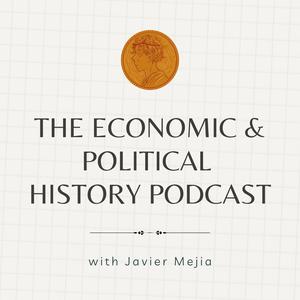
Get the free radio.net app
- Stations and podcasts to bookmark
- Stream via Wi-Fi or Bluetooth
- Supports Carplay & Android Auto
- Many other app features
Get the free radio.net app
- Stations and podcasts to bookmark
- Stream via Wi-Fi or Bluetooth
- Supports Carplay & Android Auto
- Many other app features


The Economic and Political History Podcast
download the app,
start listening.



